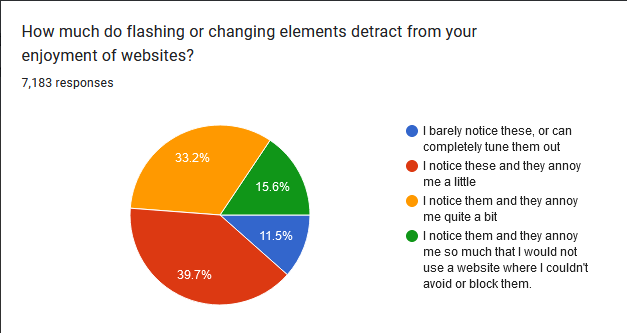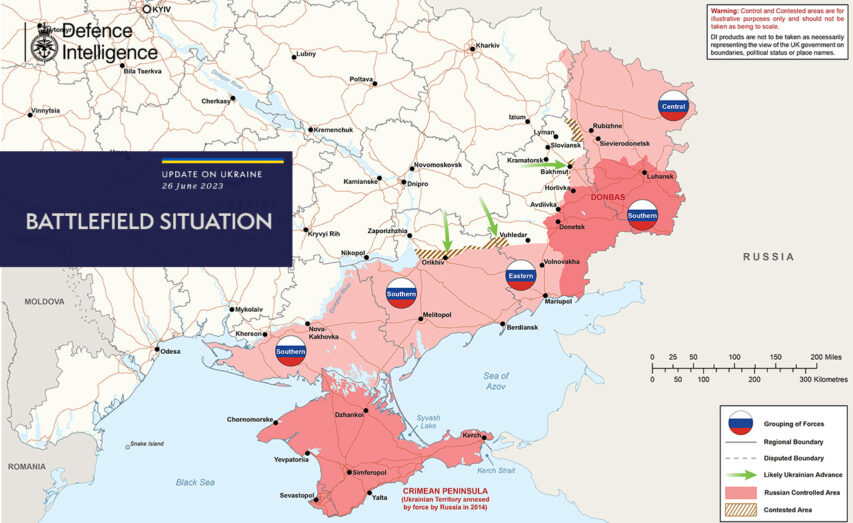CGP Grey
Published 28 Mar 2023
(more…)
June 30, 2023
The Coolest ”’Country”’ Flag You Need To Know
QotD: Changing patterns of combat on the Great Plains
The popular image of the Great Plains Native America is unarmored, of course, but that image fundamentally formed in the late 19th century, when – after centuries of the development of gunpowder weapons – everyone was unarmored. A longer view shows that Plains Native Americans were perfectly capable of both developing or adopting defensive measures which worked. And to get a full sense of that, we need to outline the major phases of the changing warfare on the Great Plains.
F.R. Secoy (op. cit.) essentially breaks warfare into four phases, which happen at different times in different places, based on if they have horses, guns, both or neither. Because horses entered the Great Plains from the South (via the Spanish) but firearms entered the region from the North (via the British and the French, the Spanish having prohibited gun-sales to Native Americans) and spread out from there, for a brief time many of these systems were active on the Plains at once, as both guns and horses diffused through the region.
In the pre-horse, pre-gun phase (described by McGinnis as well, op. cit., 8-9), battles consisted of long-range missile exchanges between warriors who stood behind large shields which protected their whole bodies. Native American warriors in this system also wore armor, heavy leather coats, laminated in multiple layers using thick hide with glue that was sometimes mixed with sand or gravel (one more example of how “leather armor” is almost always hardened leather armor, not modern clothing-leather). Some of this armor may have been effectively quilted leather as well. Clearly, there was plenty of concern about survivability here.
Both guns and horses were apt to disrupt this system. Horses allowed attackers to rapidly close the distance between the two opposing lines of shield-protected foot-missile-warriors, causing the shield-lines to drop away (though smaller shields, used on horseback to ward off arrows and blows were still used) and for both sides to seek instead the mobility of mounted fighting. That was not the end for armor though, because contact with a supply of horses meant contact with the Spanish, and the Apache at least swiftly adopted some of the Spanish methods of making leather “buff coats” into their own armor tradition and copied the shape and pattern of the buff coat itself (while often still making the material using their own tradition). As Secoy notes (op. cit., 18-20), our sources are quite clear that these forms of armor (both original and Spanish-influenced Native armors) were quite effective at resisting the archery fire that dominated both the pre-horse, pre-gun system and the post-horse, pre-gun system.
Meanwhile on the Northern Plains, while the horse had not yet arrived, firearms had, and these had different effects. Firearms spelled the end of the armor once they became common enough, since there was no protection which could resist bullets; some shield use survived, since arrows remained fairly common as well. But this didn’t lead to suicidal warfare. Instead – as had happened on the East Coast as well, Native Americans adapted their warfare to the increased lethality of firearms (on this, note Lee, op. cit. above) by mostly avoiding pitched battles as they became too lethal (which, by the by, the relatively low lethality of pitched battles pre-gunpowder is often taken to mean that Native North American warfare in general was low-lethality; this is wrong. As with most forms of non-state warfare, most of the killing happened in surprise raids and ambushes, which could be extremely lethal and were still quite common).
Once the horse and the firearm were both in wide use in an area, warfare shifted again. War parties became smaller, faster moving and more reliant on surprise (essentially an extension of the raiding-focus of the pre-horse, post-gun system to the high mobility horses supplied). Infantry battle dropped away entirely because it was too lethal and resulted in casualties that low-population density nomads could not sustain (the contrast with the much higher population-density agrarian United States, which was self-immolating in massively costly massed-infantry engagements during the American Civil War, 1861-1865, at exactly this time is striking). These are fairly big, noticeable changes in warfare patterns!
In short, the tactics used in all four of these systems were conditions by casualty aversion, which makes a lot of sense in the context of a low-population density society which simply cannot afford massive losses.
Bret Devereaux, “Collections: That Dothraki Horde, Part IV: Screamers and Howlers”, A Collection of Unmitigated Pedantry, 2021-01-08.
June 29, 2023
The End of Nazi Intelligence in 1944 – WW2 Documentary Special
World War Two
Published 27 Jun 2023After years of undermining the Nazi regime and aiding the resistance, Abwehr Chief Wilhelm Canaris finally loses his battle with Heinrich Himmler and the SS. The Abwehr Trojan Horse is no more, and German intelligence is at death’s door at the most crucial moment.
(more…)
When “flashy” became “constantly flashing”, the user experience got significantly worse
Scott Alexander on the irritating advance of meaningless flashing elements on so many web pages where they serve no real purpose, but successfully generate anger in their users:
Everyone hates flashing banner ads, but maybe they’re a necessary evil. Creators want money, advertisers demand a certain level of visibility for their ad buys, maybe sites are willing to eat the cost in user goodwill. Fine. But what’s everyone else’s excuse?
A few days ago I needed to look up an obscure point of Jewish law, as you do, and found this Jewish law website:
The background toggles every few seconds between a picture of a rabbi and a picture of … a different rabbi? There’s no conceivable benefit to this and it makes it almost impossible to concentrate on the text.
I used to think I must be the only person who worried about this; maybe it was a weird OCD thing. But I asked about it on the ACX survey …
… and 88% of people find them at least a little annoying! 16% of people go all the way, and say they wouldn’t use a website that has them!
Yet websites have been adding them to more and more parts of the user experience. Most aren’t as blatant as the Jewish law site, but they’re still there.
Miller’s Musket Conversion: The Trapdoor We Have At Home
Forgotten Weapons
Published 15 Mar 2023In 1865, brothers William and George Miller of Meriden CT patented a system to convert percussion muskets to use the new rimfire ammunition that was becoming available. Between 1865 and 1867, the local Meridan Manufacturing Company converted 2,000 surplus US Model 1861 muskets (mostly made by Parker & Snow) to the Miller system, using .58 rimfire ammunition. The US military tested one of these conversions in 1867, and found it to suffer from some gas leakage and about a 3% misfire rate. There was no further Army interest, although the New York and Maryland state militias did both purchase small numbers of the guns.
(more…)
QotD: The costs of taxation
What now seems like a lifetime ago, back in the early 1970s, I asked a colleague (who knew about such things) a somewhat complicated question.
Assuming that:
- the average individual (in those days) is forced to give a third of what he earns to government (which will do nothing productive with it, but turn it straight into trash of one kind or another), and that
- whenever three such individuals are taxed at that rate, in effect, one whole human being — including all his or her potential accomplishments, his creations, his ability to raise the standard of living for himself, for his family and friends, for everyone around him, and for society in general — has been economically obliterated, then
- how many human lives in total have been obliterated in that way since the Constitution, with its taxing powers, was ratified in 1789?
It turns out to be a very difficult question to answer. Tax rates have varied over the years, and so has the number of Americans subject to taxation. In the end, my colleage estimated that it had consumed the productive capacity of some fifty million (50,000,000) innocent human lives. That’s roughly four times the number of victims claimed by Adolf Hitler. It almost equals the number of individuals killed in all of the Second World War. It fits in somewhere between the number of Russians slaughtered by Josef Stalin and Chinese killed by Mao Zedong.
And according to political scientist R.J. Rummel, it’s properly called “democide”, since, for this purpose, everybody gets to be the Jews.
So now you finally know where your flying car went, and why there’s no cure yet for cancer. You know why there’s no luxury hotel aboard a Big Wheel space station, no vacation resort on the Moon, and no scientific base on Mars or Titan. All of those things, and many more that we expected to have (or still haven’t imagined) by now, were devoured, sometimes quite literally, by grants to investigate the territoriality of tree frogs, programs to feed individuals who can’t — or won’t — work (which is properly the job of churches), programs to keep people from smoking the wrong vegetable or (to quote the late Saint George Carlin) shooting, snorting, or rubbing it into their bellies), not to mention enforcing laws against licking the wrong toad.
Not the ones squatting in the White House.
L. Neil Smith, “Economic Genocide”, Libertarian Enterprise, 2014-06-29.
June 28, 2023
“I’ll forgive Dartnell for not writing ‘Lest Darkness Fall’ For Dummies“
Jane Psmith reviews The Knowledge by Lewis Dartnell, despite it not being quite what she was hoping it would be:
This is not the book I wanted to read.
The book I wanted to read was a detailed guide to bootstrapping your way to industrial civilization (or at least antibiotics) if you should happen to be dumped back in, say, the late Bronze Age.1 After all, there are plenty of technologies that didn’t make it big for centuries or millennia after their material preconditions were met, and with our 20/20 hindsight we could skip a lot of the dead ends that accompanied real-world technological progress.
Off the top of my head, for example, there’s no reason you couldn’t do double-entry bookkeeping with Arabic numerals as soon as you have something to write on, and it would probably have been useful at any point in history — just not useful enough that anyone got really motivated to invent it. Or, here, another one: the wheelbarrow is just two simple machines stuck together, is substantially more efficient than carrying things yourself, and yet somehow didn’t make it to Europe until the twelfth or thirteenth century AD. Or switching to women’s work, I’ve always taken comfort in the fact that with my arcane knowledge of purling I could revolutionize any medieval market.2 And while the full Green Revolution package depends on tremendous quantities of fertilizer to fuel the grains’ high yields, you could get some way along that path with just knowledge of plant genetics, painstaking record-keeping, and a lot of hand pollination. In fact, with a couple latifundia at your disposal in 100 BC, you could probably do it faster than Norman Borlaug did. But speaking of fertilizer, the Italian peninsula is full of niter deposits, and while your revolutio viridis is running through those you could be figuring out whether it’s faster to spin up a chemical industry to the point you could do the Haber-Bosch process at scale or to get to the Peruvian guano islands. (After about thirty seconds of consideration my money’s on Peru, though it’s a shame we’re trying to do this with the Romans since they were never a notably nautical bunch and 100 BC was a low point even for them; you’ll have to wipe out the Mediterranean pirates early and find Greek or Egyptian shipwrights.) And another question: can you go straight from the Antikythera mechanism to the Jacquard machine, and if not what do you need in between? Inquiring minds want to know.3
But I’ll forgive Dartnell for not writing “Lest Darkness Fall” For Dummies, which I’ll admit is a pretty niche pitch, because The Knowledge is doing something almost as cool.4 Like my imaginary book, it employs a familiar fictional conceit to explain how practical things work. Instead of time travel, though, Dartnell takes as his premise the sudden disappearance (probably plague, definitely not zombies) of almost all of humanity, leaving behind a few survivors but all the incredible complexity of our technological civilization. How would you survive? And more importantly, how would you rebuild?
1. I read the Nantucket Trilogy at an impressionable age.
2. Knitting came to Europe in the thirteenth century, but the complementary purl stitch, which is necessary to create stretchy ribbing, didn’t. If you’ve ever wondered why medieval hosen were made of woven fabric and fit the leg relatively poorly, that’s why. When purling came to England, Elizabeth I paid an exorbitant amount of money for her first pair of silk stockings and refused to go back to cloth.
3. Obviously you would also need to motivate people to actually do any of these things, which is its own set of complications — Jason Crawford at Roots of Progress has a great review of Robert Allen’s classic The British Industrial Revolution in Global Perspective that gets much deeper into why no one actually cared about automation and mechanization — but please allow me to imagine here.
4. Please do not recommend How To Invent Everything, which purports to do something like this. It doesn’t go nearly deep enough to be interesting, let alone useful. You know, in the hypothetical that I’m sent back in time.
Ted Gioia’s confession – he’s a Dan stan
While I’ve never been much of a musicologist — and definitely not any kind of musician — I admit I had a very similar evolution of feeling toward the music of Steely Dan as Ted Gioia, who charts his progress from Never Dan to Dan stan:
I often make jokes about Steely Dan fans.
They’re bros and geeks and sad wannabes. But the painful truth is that I’m one of them now.
And if you don’t watch out, it could happen to you too.
At least I can laugh at myself. That’s good, because fans like me are the real target of the jokes.
And it’s true — we are a trifle obsessed.
If you’re a Dan stan, you see the band’s influence everywhere. Random patterns take on new Dan-esque shapes. For you it’s just rush hour traffic, but for us it’s a message from the cosmos.
But I wasn’t always like this. Once upon a time, I was a Steely Dan skeptic, a real Dan-o-phobe. I thought I was safe from their pernicious influence, but I was wrong.
This is my story.
How to Fund a War: Lend Lease, Billion Dollar Gift, and Aid to Britain
OTD Military History
Published 27 Jun 2023Programs like Lend Lease, Mutual Aid, and the Billion Dollar Gift were support from Canada and the United States that helped Britain with war supplies and material in the darkest days of World War 2.
(more…)
The Treaty of Versailles: 100 Years Later
Gresham College
Published 4 Jun 2019The Treaty of Versailles was signed in June 1919. Did the treaty lead to the outbreak of World War II? Was the attempt to creat a new world order a failure?
A lecture by Margaret MacMillan, University of Toronto
04 June 2019 6pm (UK time)
https://www.gresham.ac.uk/lectures-an…A century has passed since the Treaty of Versailles was signed on 28 June 1919. After WWI the treaty imposed peace terms which have remained the subject of controversy ever since. It also attempted to set up a new international order to ensure that there would never again be such a destructive war as that of 1914-18. Professor MacMillan, a specialist in British imperial history and the international history of the 19th and 20th centuries, will consider if the treaty led to the outbreak of the Second World War and whether the attempt to create a new world order was a failure.
(more…)
QotD: Freud and modern Feminism
I recently came across an article about Sigmund Freud’s theory of female psycho-sexual development, in which Taylor Kubota described penis envy as follows: “Women become envious of penises at a young age, when they realize boys derive more sexual pleasure from their penises than girls do from their own sexual organs. Freud said this penis envy grows over time.” This idea, which I had long disregarded and which didn’t correspond to my own experience (as a child I never saw or thought of boys’ penises; as a young woman I had no sense of lack) makes sense now in light of feminism’s decades-long attack on male sexuality. The attack is based, as feminists’ own words and policies indicate, on a febrile mix of resentment, envy, and projection in which the belief that men enjoy sex more than women (and that the enjoyment hurts women, in the typical zero-sum thinking of feminism) has fueled ever-more frenzied attempts at male neutering.
Serious psychotherapists or students of Freud should probably stop reading right now, as I am not attempting a genuine psychoanalytic analysis of feminism or indeed of penis envy, which has been widely dismissed as sexist or justified as women’s accurate recognition of men’s power. My theory — if it deserves that name — stems from the recognition that anti-sex feminism, involving the continual projection onto men of female sexual anxieties and discontents, has a far more extensive pedigree than most people realize, and that much feminist discussion and activism today take for granted that law and public policy are rightly directed towards “equalizing” not only rights or opportunities but also sexual experience itself, by prioritizing female pleasure and diminishing male.
It’s no revelation that many feminist-influenced women are hyper-alert to male advantage while being willfully blind to male disadvantage. In the arena of sexuality, where male and female most intimately and yet mysteriously interact, the irrational ferocity of feminist grievance-mongering reveals itself tellingly. Unwilling and unable to extend sympathetic understanding to male sexual difference, feminist ideology authorizes an envy-fueled anger that far surpasses legitimate caution.
A word about that legitimate caution. Throughout history, well-functioning societies have recognized the threat to civil order — and to women’s safety in particular — of male lust, and have passed laws and constructed codes of behavior to contain and direct it. Fathers and husbands have always been interested in protecting their womenfolk from sexual violence. Feminists, however, while exalting female sexuality as benign and beautiful, have repeatedly refused to recognize any manifestation of male sexuality as good. A mere glance at prominent feminist claims and policy initiatives highlights their continual misrepresentations.
Janice Fiamengo, “Do Feminists Suffer From Penis Envy?”, The Fiamengo File, 2023-03-26.
June 27, 2023
“People’s patience in the face of the daily elitist provocations of Just Stop Oil is nothing short of Herculean”
The virtue-signalling lunatics of the various Extinction Rebellion sub-groups depend far more than they realize on the patience and tolerance of ordinary Britons who are just trying to get on with their daily lives. Wealthy, highly educated, privileged scions of the well-connected may very quickly learn that the well of tolerance they’re drawing from can run dry extremely quickly. Brendan O’Neill says even some of the movers and shakers of the donor class are starting realize the dangers their protest foot soldiers are running:

“Just Stop Oil Courtauld Gallery 30062022” by Just Stop Oil is licensed under CC BY-SA 4.0 .
So even one of Just Stop Oil’s wealthy donors is tiring of its classist stunts. Trevor Neilson, a co-founder of the Climate Emergency Fund, which has pumped money into Just Stop Oil, says the eco-irritants’ funereal, road-blocking marches for Mother Earth increasingly come off as “disruption for the sake of disruption“. You have “working people that are trying to get to their job, get their kid dropped off at school [and] survive a brutal cost-of-living crisis”, he says, and then along comes a “pink-haired, tattooed and pierced protester standing in front of their car”. It pisses people off, he said.
He’s not wrong. Anyone with eyes in their head can see that Just Stop Oil, and its mother movement Extinction Rebellion, is riling the workers of Britain. Imagine you’re trying to get to work to earn a crust in tough times and up pops a privately educated, possibly non-binary loon with multi-coloured hair to tell you in a voice breaking with juvenile emotion that Judgement Day is coming. The fainthearts of the liberal media are always aghast when an angry scaffolder or stressed trucker drags one of the green hysterics off the road, but I’m blown away by the restraint of the British public. People’s patience in the face of the daily elitist provocations of Just Stop Oil is nothing short of Herculean.
It is “counterproductive”, says Mr Neilson, to have pink-haired sons and daughters of privilege inconveniencing workers during a “brutal” economic downturn. Again, he’s not wrong. The class-war streak in eco-activism is undeniable. Many Extinction Rebellion types are descendants of money. Writer Harry Mount calls them “Econians”, a green twist on “Etonians”. They’re the “public-school boys and girls who rule the wokerati world”. A survey of 6,000 XR activists who brought London to a halt in April 2019 found they were “overwhelmingly middle-class [and] highly educated”. Anyone who walked through London that month will have heard “Cut carbon emissions!” being cried in cut-glass tones and understood right away that our great city was under siege by vengeful aristocrats still smarting from the Industrial Revolution.
Adam Kinzinger seems to admit that the “Patriot Front” are really federal agents
Tom Knighton on the weird MAGA-versus-“MAGA” confrontation:
A while back, a group calling itself Patriot Front showed up. Dressed in dark shirts and khaki pants, with ball caps and masks hiding their face, Patriot Front started engaging in some very … questionable behavior.
Almost immediately, they were labeled as feds.
Virtually no one believed they were who they claimed to be. They were openly Nazi-like, even providing the Hitler salute, all without the usual trappings of the neo-Nazis we typically see.
Well, recently, the Proud Boys clashed with Patriot Front.
The Proud Boys have been accused of being all kinds of things, too, including racists, yet it’s clear from the video shown that the Proud Boys aren’t fans of Patriot Front. Instead, you hear jeers calling them “racists” and “Nazis”.
The altercation got physical and a couple of the Patriot Front members were unmasked.
Enter former Congressman Adam Kinzinger, who offered up this hot take:
The video shown there is, in fact, the video in question, and Kinzinger’s comments have riled a lot of people up.
After all, he’s basically admitting that Patriot Front is a federal law enforcement operation.
Is it?
Probably, though I’m not sure Kinzinger would be read in on such an operation.
“No one seems to understand what the hell just happened in Russia”
Discussing anything to do with the Russo-Ukraine war is difficult enough due to the signal-to-noise ratio in the information we get from both sides and (theoretically) disinterested observers. Trying to read the tea leaves in the events over the weekend was just an utter waste of time, despite the potentially earth-shaking possibilities being thrown up. The weekend dispatch from The Line doesn’t pretend to have any deep analysis to offer, which I think is by far the wisest approach:

“Sir Humphrey Appleby” tweeted this, saying it was “the intelligence update slide every DI analyst secretly dreams of producing …
As we write this, roughly a day has passed since the sudden end of what briefly looked like a massive event with the potential to reshape global politics for a generation … before it fizzled. The rebellion of Russia’s Wagner mercenary group and its bolt toward Moscow was a stunning story, until it wasn’t. And that itself is a stunning story. Yevgeny Prigozhin, former chef and now Wagner leader, suddenly called off his mutiny, and it just … ended.
Really?
When the mutiny began on Friday, and especially when Wagner seized the southern city of Rostov, home to a major Russian military headquarters overseeing the invasion of Ukraine as well as a million other people, we were surprised, but the more we thought about it, we weren’t particularly shocked. There had been obvious signs of an imminent rupture of some kind in recent months; Line editor Gurney had wondered on Twitter how long it could last before something snapped. That was about three hours before the entire country seemed to snap and Prigozhin marched into Rostov and began moving north.
Events proceeded at a fairly frantic pace after that, with Wagner troops advancing almost all the way to Moscow while Russian security forces fortified the city and tore up roads along the route. It wasn’t clear to us that Wagner had enough men to actually take the city and potentially capture key members of the government. But it wasn’t clear that he didn’t: there are two sides of that equation — the troops Prigozhin had and the troops Putin could count on to oppose Wagner. It was the latter group that captured our interest.
Wagner encountered some resistance along the way, but not much. Most of Russia’s army is deployed in Ukraine, of course, and much of what’s left is now of famously poor quality and morale. But even those military and security forces that were able to block Wagner’s advance didn’t seem that interested in the job. There are reports that some units went over to Prigozhin’s side, but it seems that most of them just did … nothing in particular. And waited to see what happened. For a few hours, we wondered if Prigozhin’s small force would be just large enough in the face of a Russian military that seemed to have no appetite for battle on its own soil.
We can’t pretend to explain the bizarre conclusion to this chaotic day and a half, with an apparent deal brokered by Belarus seeing Wagner’s advance on Moscow called off, a broad amnesty granted to all participants and Prigozhin apparently set to continue to oversee Wagner’s global operations from Belarus in some kind of exile. This is all just wildly unrealistic. Prigozhin cannot be the last person around to realize that he’s put a target on his back and that he’ll soon experience some kind of fatal medical emergency or tragic tumble out of an open window. The moment his mercenaries took Rostov, he had only one path forward: all the way to the Kremlin. What the hell he’s thinking is frankly beyond our ability to guess, and we have fairly vivid imaginations. It’s baffling.
Nor will we try to guess what this will mean for Russia. In a situation like this, your Line editors would normally simply confess that we don’t have the deep knowledge of Russian domestic politics to turn ourselves into credible instant-experts on this. We’d seek out someone with that knowledge. We could interview them, solicit a column from them, or even — as we’ve done in the past — allow someone with deep expertise but who isn’t permitted to speak on the record in public to provide a blurb for one of these dispatches, to run under our shared byline. But in this case, we had to reject all those options, because at least for right now, all the experts seem as baffled as we are. No one seems to understand what the hell just happened in Russia.
We can say with at least reasonable confidence that if you happen to be named Vladimir Putin, it isn’t good. When Prigozhin announced that he was ending his mutiny and began withdrawing his forces from Rostov, the locals cheered them like some kind of conquering heroes. That’s gotta be on Putin’s mind. Also on his mind: the apparent, ahem, reluctance of much of his military and domestic security force to rally to his side during the crisis. This has wounded Putin. Time will tell how badly. Time will also tell how many other people in Russia today have carefully watched recent events, have adjusted their understanding of the facts on the ground there, and are now pondering a variety of intriguing options accordingly.
And the last thing time will tell is what Putin feels he must now do to assert his authority, such as it is. We must recall that whatever Putin’s domestic troubles, he has problems on the battlefield, too. While we haven’t yet seen major breakthroughs by Ukrainian forces, they are not yet fully committed, and their counteroffensive does seem to be making gradual progress in multiple sectors. Events of recent days can only hurt Russia’s combat performance and morale.
We wish we could offer you all a more firm and decisive statement to wrap all this up. But the best we can honestly promise you is that we’ll keep pondering this, trying to figure out what the hell happened, and we’ll certainly be watching this. It’s been a strange war. And we suspect it might get stranger still before it finally ends.
The most recent Defence Intelligence update map from the British Ministry of Defence shows what is thought to be a reasonably accurate representation of the battlefront in eastern Ukraine:
Uncancelled History with Douglas Murray | EP. 05 Winston Churchill
Nebulous Media
Published 20 Dec 2022Andrew Roberts joins Douglas Murray on this episode to discuss Winston Churchill. The two discuss the soldier, writer and prime minister in detail, leaving nothing off limits. Should the British Bulldog stay cancelled?
(more…)












